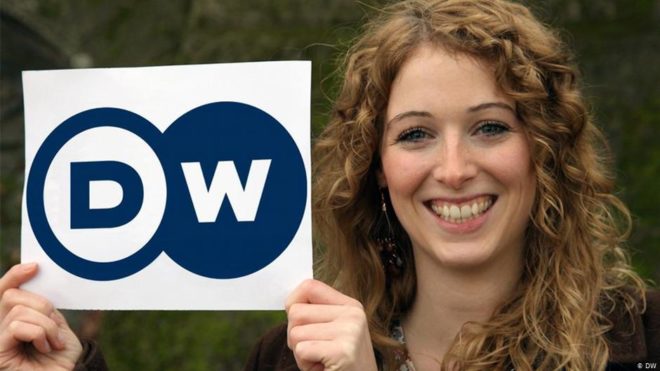Out Country Rights of Appeal – Law & Pr...
Out Country Rights of Appeal – Law & Procedure
Non-visa nationals are required to make an entry clearance application before making any arrangements of travelling to the UK. There are separate application forms available to apply for temporary and permanent immigration categories that requires a distinct set of documents / information for specific immigration category. The applications are quite straightforward but certain cases require to be presented in a professional manner to avoid any disappointment.
In addition to that it is not necessary that the entry clearance officers makes a right decision every time, sometimes they do mistakes and refuse the entry clearance applications. There may be more than one reason for the refusal of entry clearance application e.g. non-provision of relevant documents that could have been provided at no extra cost or delay, lack of professional advice, confusion during the interview and the like. It would be easier to understand the various aspects of the appeal against the entry clearance refusals under the following headings:
1. Right of Appeal
Refusal of the most of the entry clearance applications triggers a right of appeal for the appellant. There is however, no right of appeal for either the applicant or dependants travelling with the applicant in the following cases:
- If the application is for a visit to the United Kingdom, other than a family visit. A family visit is a visit to the applicant`s one of the following relatives or relations in the UK:
- Applicant`s spouse, father, mother, son, daughter, grandfather, grandmother, grandson, granddaughter, brother, sister, uncle, aunt, nephew, niece or first cousin (son or daughter of his uncle or aunt)
- The father, mother, brother or sister of the applicant`s spouse;
- The spouse of the applicant`s son or daughter;
- The applicant`s stepfather, stepmother, stepson, stepdaughter, stepbrother or stepsister; and
- A person with whom the applicant has lived as a member of an unmarried couple for at least two of the three years before the day on which his application for entry clearance was made.
- If the application is to study in the United Kingdom for less than six months.
- If the application is to study in the United Kingdom but the applicant has NOT been accepted for any course.
- If the application is refused because the applicant does not have a document required under the immigration rules for example an original work permit in case of entry clearance application in line with a work permit.
- If the application is refused because the applicant does not qualify for entry clearance under the immigration rules because of age, nationality or citizenship.
- If the application is refused because the applicant wishes to stay longer than is allowed under the immigration rules.
2. Time Limitations
The appellant has got 28 calendar days to lodge an appeal against the decision of the entry clearance officer. Time starts running from the day that the refusal of the entry clearance application is served to the appellant and not from the date of refusal. The appellant can however apply for an extension of time limit if he has got some reasonable excuse for the delayed submission of appeal.
3. Grounds of Appeal
The appellant needs to give the reasons of making the appeal. This is quite important and it needs great expertise to draft the grounds of lodging the appeal. This is normally done by relating the information and circumstances of the appellant to the relevant requirements of the immigration rules or other laws. The appellant can make use of all or either of the following grounds of appeal in order to address the reasons of lodging the appeal more effectively:
- That the decision is wrong under the immigration rules, or discretion under the rules should have been exercised in the applicant`s favour.
- That the decision is discriminatory under the Race Relations Act 1976.
- That the decision breaches the applicants human rights.
- That the removal from the UK as a result of this decision would breach the applicant`s human rights or the UK`s obligations to refugees.
- That the decision breaches Treaty rights in respect of an EEA National or dependant.
- That the decision is otherwise unlawful.
4. Detailed Procedure
Whenever an entry clearance officer refuses an entry clearance application that leads to a right of appeal, they inform the appellant about their right of appeal and the time duration during which they need to lodge the appeal. This is a two-stage process:
- Submission of AppealThe appellant is required to submit the appeal from along with the relevant documents within 28 days from the service of the refusal letter. It should contain all the relevant information and documents and address all the issues raised by the entry clearance officer in the refusal letter. The Grounds of appeal section is a very important section of the appeal form and should to used to clearly and explicitly address all the relevant issues. More efforts should be put in making arrangements for the availability of appropriate documents that could assist in explaining the way that the appellant fulfils the necessary requisites of the immigration rules or other relevant policies.When the British Diplomatic post receives an appeal form, they review the refusal of the entry clearance application in conjunction with the grounds of appeal and the documents submitted with the appeal form. A more senior person does a review and makes his decision of either upholding the ECO`s decision or overturning his decision and issuing entry clearance to the appellant. The process of appeal therefore stops when the appeal is being reviewed and the decision of the ECO is overturned resulting in the issuance of entry clearance to the appellant.If the ECO`s decision is upheld, the appeal process does not stop and proceeds to a full court hearing in the UK. The appellant however has got option to request the appeal to be done without a court hearing on the basis of papers alone. The ECO prepares a bundle of documents for the Court hearing and sends it to the AIT for necessary action. The bundle of documents includes:
- Brief notes of the senior ECO or ECM regarding his decision of not overturning the ECO`s decision.
- Copy of the entry clearance application.
- Copies of the documents submitted with the entry clearance application.
- Interview notes taken by the Entry clearance officer.
- Copy of the refusal letter of the Entry clearance officer.
- Records of the checks made by the ECO or on behalf of the ECO regarding the credibility of documents submitted with the entry clearance application.
- Copy of the appeal form.
- Copies of the documents submitted with the appeal form.
- Any other documents which are relevant to the specific case.
- Full Court HearingIf the appellant decides to have his appeal heard before the Adjudicator, he needs to appoint a representative who could represent him in the court proceedings. The appellant cannot possibly attend the Court hearing as he is outside the UK.The appellant is allowed to submit more documents or information before the court and the Adjudicator considers the appeal in the light of the Bundle of documents submitted by both the parties and the submissions made by the appellant`s representative and by the presenting officer representing the ECO. The appellant`s representative is also allowed to use witnesses where relevant, to explain the genuineness of the case and the relevant circumstances and to give an opportunity of cross-examination of the witness to the presenting officer before the Court.The Court hearing results in a judicial determination of the entry clearance officer`s decision by a judge which can be challenged on point of law only, by either of the parties of the case. The scope of the appeal would be restricted and the parties would only be allowed to take up the legal issues involved in the case. The entry clearance application therefore is in fact a starting point of the legal mechanism and might end up in higher courts of the UK. This is the reason that it is always advised to take professional advise and services before making any entry clearance application otherwise the cost and the time taken by getting a remedy could be very distressing for you!!







